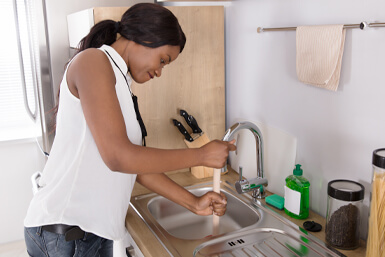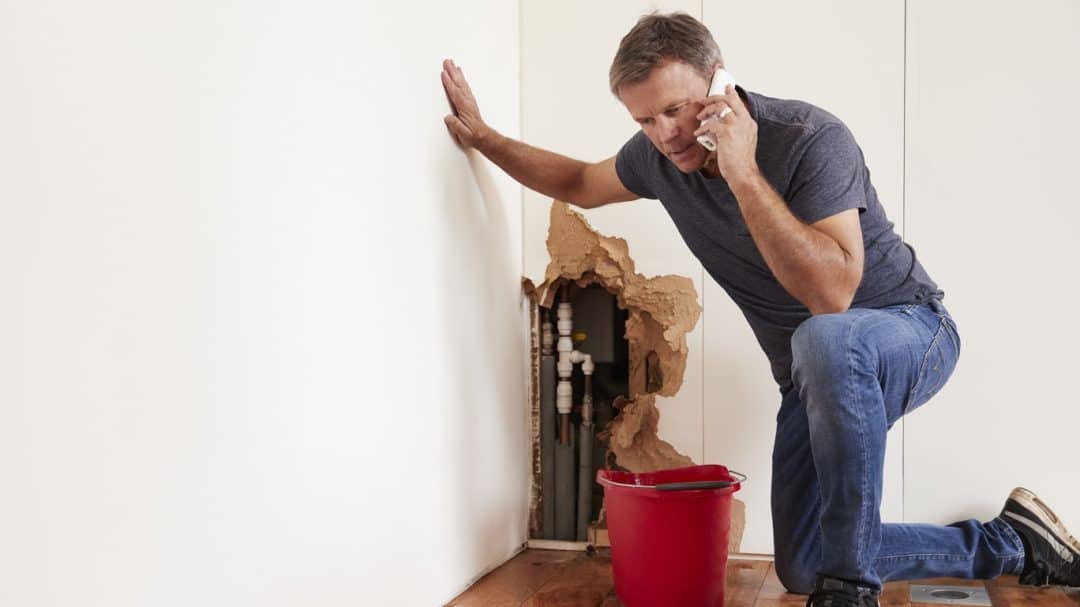Noisy Plumbing Troubles Fixed!
Noisy Plumbing Troubles Fixed!
Blog Article
They are making a few good points relating to Why is My Home Making Strange Plumbing Noises in general in this post on the next paragraphs.

To identify noisy plumbing, it is essential to figure out very first whether the unwanted noises occur on the system's inlet side-in other words, when water is turned on-or on the drain side. Sounds on the inlet side have actually differed reasons: extreme water stress, worn valve and faucet parts, poorly attached pumps or various other devices, improperly placed pipeline bolts, as well as plumbing runs consisting of a lot of tight bends or other restrictions. Sounds on the drainpipe side normally stem from inadequate area or, just like some inlet side sound, a format consisting of limited bends.
Hissing
Hissing sound that takes place when a tap is opened somewhat normally signals extreme water pressure. Consult your local water company if you suspect this problem; it will have the ability to inform you the water stress in your location as well as can set up a pressurereducing valve on the incoming water supply pipeline if essential.
Thudding
Thudding sound, commonly accompanied by trembling pipes, when a faucet or appliance shutoff is shut off is a condition called water hammer. The noise and also resonance are triggered by the reverberating wave of pressure in the water, which instantly has no area to go. Often opening a valve that releases water swiftly into a section of piping having a limitation, elbow joint, or tee fitting can generate the exact same condition.
Water hammer can usually be healed by setting up fittings called air chambers or shock absorbers in the plumbing to which the trouble shutoffs or faucets are attached. These gadgets allow the shock wave developed by the halted circulation of water to dissipate in the air they have, which (unlike water) is compressible.
Older plumbing systems might have short upright sections of capped pipe behind wall surfaces on faucet competes the exact same purpose; these can at some point full of water, reducing or damaging their efficiency. The treatment is to drain pipes the water system entirely by shutting off the major supply of water shutoff as well as opening up all faucets. Then open up the main supply shutoff and shut the faucets individually, starting with the tap nearest the valve as well as ending with the one farthest away.
Babbling or Screeching
Extreme chattering or screeching that happens when a valve or faucet is activated, and that generally vanishes when the installation is opened completely, signals loosened or defective inner parts. The option is to replace the valve or tap with a new one.
Pumps and also appliances such as cleaning machines as well as dish washers can transfer motor sound to pipes if they are incorrectly connected. Link such things to plumbing with plastic or rubber hoses-never rigid pipe-to isolate them.
Other Inlet Side Noises
Squeaking, squeaking, scraping, breaking, and touching generally are caused by the growth or tightening of pipes, normally copper ones providing hot water. The noises occur as the pipelines slide versus loose bolts or strike neighboring house framework. You can usually pinpoint the place of the issue if the pipelines are subjected; just comply with the audio when the pipes are making sounds. Most likely you will find a loosened pipe hanger or an area where pipelines exist so near floor joists or other framing items that they clatter versus them. Affixing foam pipe insulation around the pipes at the point of get in touch with must treat the issue. Make certain bands as well as wall mounts are safe and secure and also provide sufficient assistance. Where possible, pipe fasteners ought to be connected to large architectural components such as structure wall surfaces instead of to framing; doing so lessens the transmission of vibrations from plumbing to surfaces that can enhance as well as transfer them. If connecting bolts to framework is inevitable, cover pipelines with insulation or various other durable product where they get in touch with fasteners, and sandwich completions of brand-new fasteners between rubber washers when mounting them.
Dealing with plumbing runs that experience flow-restricting limited or various bends is a last option that must be embarked on just after seeking advice from a knowledgeable plumbing service provider. However, this scenario is relatively typical in older homes that may not have been constructed with interior plumbing or that have actually seen a number of remodels, particularly by amateurs.
Drainpipe Sound
On the drainpipe side of plumbing, the chief goals are to eliminate surface areas that can be struck by dropping or rushing water and also to protect pipes to have inevitable sounds.
In brand-new building, bathtubs, shower stalls, commodes, as well as wallmounted sinks and containers ought to be set on or against durable underlayments to decrease the transmission of audio with them. Water-saving toilets as well as faucets are much less noisy than standard designs; mount them instead of older kinds even if codes in your area still allow using older components.
Drainpipes that do not run up and down to the basement or that branch right into horizontal pipeline runs supported at flooring joists or other mounting present specifically problematic sound issues. Such pipelines are big sufficient to radiate substantial vibration; they likewise lug significant quantities of water, that makes the situation worse. In brand-new construction, specify cast-iron dirt pipelines (the large pipelines that drain bathrooms) if you can manage them. Their enormity has a lot of the noise made by water passing through them. Likewise, prevent directing drains in wall surfaces shown to bedrooms as well as areas where people gather. Walls consisting of drains should be soundproofed as was explained previously, making use of dual panels of sound-insulating fiberboard and wallboard. Pipes themselves can be covered with unique fiberglass insulation created the purpose; such pipes have an invulnerable vinyl skin (often having lead). Outcomes are not always acceptable.
3 Most Common Reasons for Noisy Water Pipes
Water hammer
When water is running and is then suddenly turned off, the rushing liquid has no place to go and slams against the shut-off valve. The loud, thudding sound that follows is known as a water hammer. Besides being alarming, water hammer can potentially damage joints and connections in the water pipe itself. There are two primary methods of addressing this issue.
Check your air chamber. An air chamber is essentially a vertical pipe located near your faucet, often in the wall cavity that holds the plumbing connected to your sink or tub. The chamber is filled with air that compresses and absorbs the shock of the fast moving water when it suddenly stops. Unfortunately, over time air chambers tend to fill with water and lose their effectiveness. To replenish the air chambers in your house you can do the following. Turn off the water supply to your house at the main supply (or street level). Open your faucets to drain all of the water from your plumbing system. Turn the water back on. The incoming water will flush the air out of the pipes but not out of the vertical air chamber, where the air supply has been restored. Copper pipes
Copper pipes tend to expand as hot water passes through and transfers some of its heat to them. (Copper is both malleable and ductile.) In tight quarters, copper hot-water lines can expand and then noisily rub against your home's hidden structural features — studs, joists, support brackets, etc. — as it contracts.
One possible solution to this problem is to slightly lower the temperature setting on your hot water heater. In all but the most extreme cases, expanding and contracting copper pipes will not spring a leak. Unless you’re remodeling, there's no reason to remove sheetrock and insert foam padding around your copper pipes.
Water pressure that’s too high
If your water pressure is too high, it can also cause noisy water pipes. Worse, high water pressure can damage water-supplied appliances, such as your washing machine and dishwasher.
Most modern homes are equipped with a pressure regulator that's mounted where the water supply enters the house. If your home lacks a regulator, consider having one professionally installed. Finally, remember that most plumbers recommend that water is delivered throughout your home at no lower than 40 and no greater than 80 psi (pounds per square inch).
Whatever the state of your plumbing, one thing is certain — you’re eventually going to encounter repair and replacement issues around your home that require professional help. That’s where American Home Shield can come to your aid.
https://www.ahs.com/home-matters/repair-maintenance/causes-of-noisy-water-pipes/

As a keen person who reads about Why is My Home Making Strange Plumbing Noises, I assumed sharing that segment was really helpful. Sharing is caring. You never know, you may just be doing someone a favor. Thanks a lot for going through it.
Book Your Appointment Report this page